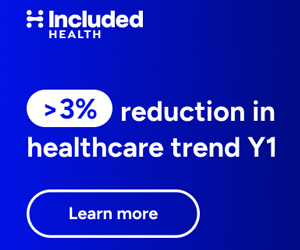
 This week was the very flash, very well marketed and apparently rather fun HLTH conference. As you might guess, given I’ve run a somewhat similar conference in a similar space for the past decade and this was the biggest market entrant in years, I was paying alot of attention, even though I wasn’t actually there. So I started writing a few tweets yesterday morning which basically became the equivalent of a blog post–so I made it one here!
This week was the very flash, very well marketed and apparently rather fun HLTH conference. As you might guess, given I’ve run a somewhat similar conference in a similar space for the past decade and this was the biggest market entrant in years, I was paying alot of attention, even though I wasn’t actually there. So I started writing a few tweets yesterday morning which basically became the equivalent of a blog post–so I made it one here!
-
- Since the fuss about & success of #HLTH2018 I’ve been thinking a lot about the role of health tech conferences and in some ways @HLTHEVENT is a perfect metaphor for the health care system as a whole /1
- Bear in mind I co-founded & still am co-chair of @health2con which when it started was regarded as revolutionary & different – so this is tinged with professional envy. Also bear in mind that I was at #ythlive this week so didn’t actually go to Vegas. So grains of salt /2
- What @HLTHEVENT did was convince virtually every CEO who’s ever presented at @health2con @WHCCevents @hdpalooza etc over the past decade to come speak in Vegas at an unknown conference–albeit one that had a ton of money to burn, and great connections via VC @oakhcft /3
- Given the crap I’ve received over the years from certain CEOs who only want to keynote @health2con & were instead asked to be on a panel, or worse were put in a break out, I’m amazed they pulled it off. But they did & it seems all were happy /4
- OK, here’s the metaphor part. Once #HLTH2018 achieved essentially a “health tech co CEO monopoly” (for 4 days in one place), they were able to act like a health system that’s done the same thing with its providers & hospitals (cough cough @UPMC @SutterHealth et al) /5














